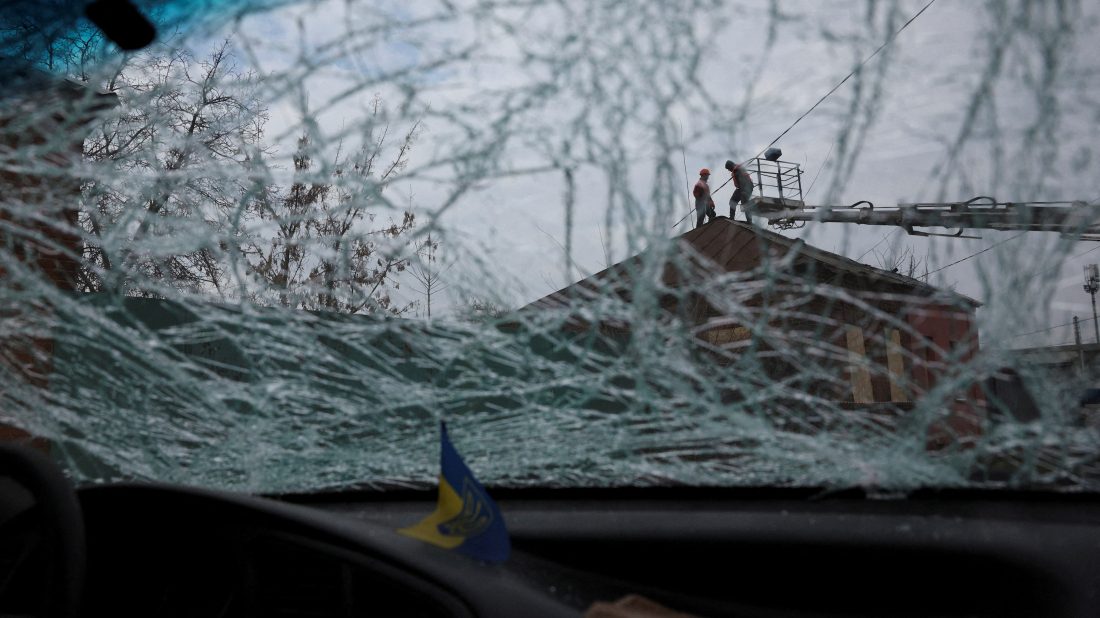live U.S. confirms troop deaths: All the latest news on Middle East conflict
The widening war between Iran, U.S. and Israel is leaving civilians and soldiers caught in its wake. Thousands of people are stranded across the Gu...

Senior Trump administration officials are privately acknowledging that a Ukraine peace deal is unlikely in the coming months, despite early hopes of brokering a ceasefire by spring.
According to two U.S. officials who spoke to Reuters, the White House and State Department are now drawing up fresh plans to pressure both Kyiv and Moscow, as the war shows no signs of ending. The conflict, now in its third year, has cost hundreds of thousands of lives and risks drawing NATO closer to direct confrontation with nuclear-armed Russia.
President Trump, who entered office promising swift peace, is said to be increasingly irritated. The White House believes Ukrainian President Volodymyr Zelensky is stalling negotiations, especially over a proposed U.S.-Ukraine minerals agreement. But recent frustrations have turned toward Moscow.
Over the weekend, officials reviewed ways to force Russia back to the table, including possible secondary sanctions and tariff hikes on oil buyers. In an interview, Trump threatened tariffs of up to 50% on Russian oil exports, responding to Putin’s remarks questioning Zelensky’s legitimacy.
Secretary of State Marco Rubio told Baltic ministers last week that peace in Ukraine remains distant. National Security Council spokesperson James Hewitt confirmed that the administration is now considering further sanctions, saying: “President Trump was clear he will consider imposing secondary sanctions on all oil coming out of Russia if they are not serious about bringing this conflict to a peaceful resolution.”
Yet Moscow remains defiant. Deputy Foreign Minister Sergei Ryabkov said current U.S. peace proposals fail to address what Russia considers the core causes of the war.
Putin's demands remain high: a rollback of NATO operations in Europe and a ban on peacekeepers in Ukraine. Western officials say these “maximalist” requests are non-starters.
Despite early hopes that sanctions might pressure the Kremlin, U.S. officials are now less convinced. Trump's team, including Rubio, National Security Adviser Mike Waltz, and Ukraine envoy Gen. Keith Kellogg, are debating how much ground the West can give without compromising core strategic interests.
Meanwhile, tensions with Kyiv continue. Trump accused Zelensky of trying to exit a rare earth minerals deal seen as key to U.S. involvement. “He’s trying to back out... and if he does that he’s got some problems, big, big problems,” Trump said.
The White House is reportedly reviewing the terms of that deal to make it more acceptable to Kyiv. However, ceasefire efforts around energy infrastructure and the Black Sea have stalled, with both sides continuing attacks despite initial agreements.
While public statements from Trump remain optimistic, confidence inside the administration is faltering. Talks have not broken down completely—but hopes for a quick deal are fading fast.
The Kremlin is utilising the recent United States and Israeli military strikes on Iran to validate its ongoing war in Ukraine. Russian officials are pointing to the escalation in the Middle East as evidence that Western nations do not adhere to international rules.
Saudi Arabia’s state oil giant Saudi Aramco closed its Ras Tanura refinery on Monday following an Iranian drone strike, an industry source told Reuters as Tehran retaliated across the Gulf after a U.S.-Israeli attack on Iranian targets over the weekend.
U.S. President Donald Trump said the U.S. military has enough stockpiled weapons to fight wars "forever"; in a social media post late on Monday. The remarks came hours before conflict in Iran and the Middle East entered its fourth day.
China’s Foreign Minister Wang Yi has held talks with his Russian counterpart Sergei Lavrov following recent military strikes carried out by the United States and Israel on targets in Iran, as tensions in the Middle East continue to rise.
The U.S. embassy in Riyadh was hit by two drones resulting in a limited fire and some material damage, the kingdom's defence ministry said in a post on X on Tuesday, citing an initial assessment.
Start your day informed with AnewZ Morning Brief. Here are the top news stories for the 4th of February, covering the latest developments you need to know.
Strikes across the Middle East are intensifying, fuelling travel disruption, driving up global energy prices and forcing diplomatic missions to shut their doors.
U.S. President Donald Trump has said the United States has a “virtually unlimited supply” of munitions and is capable of sustaining military action indefinitely, as the conflict with Iran entered its fourth day.
The United Nations has called for an investigation into a deadly attack on a girls’ primary school in Iran, which Iranian officials say has killed more than 100 children. The U.S. has said its forces “would not” deliberately target a school.
U.S. first lady, Melania Trump chaired a UN Security Council meeting on children and education in conflict on Monday (2 March), a move criticised by Iran as hypocritical following U.S. and Israeli strikes that triggered a UN warning about risks to children.
You can download the AnewZ application from Play Store and the App Store.

What is your opinion on this topic?
Leave the first comment